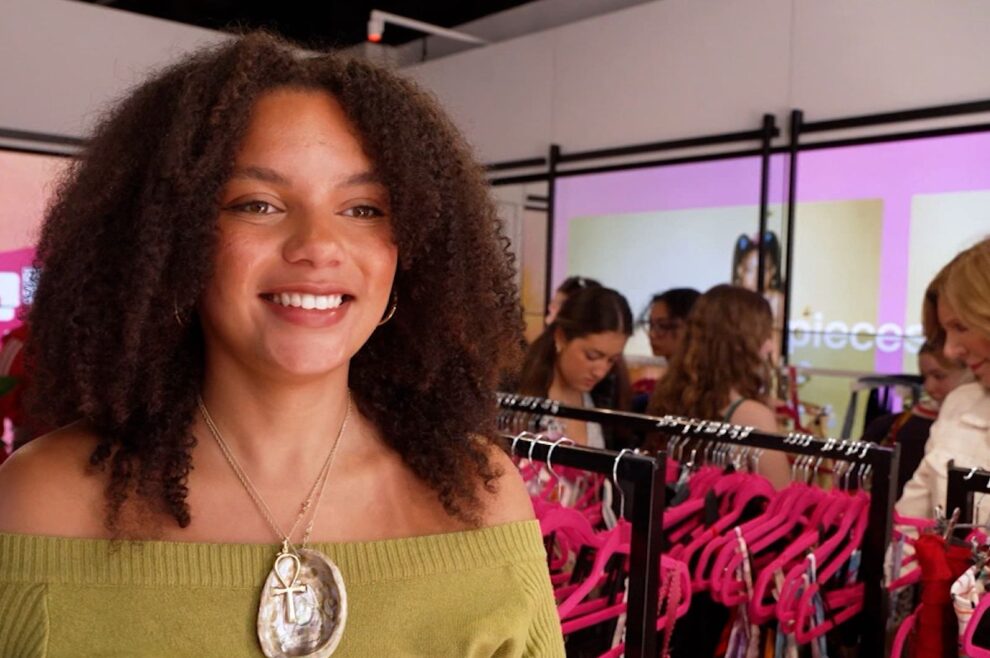British high streets are not faring well. They’re struggling against the shift to online shopping, rising operating and supply-chain costs, and shoppers having their spending money chipped away by inflation.
At the end of 2022, nearly 14% of high street shops, and more than 18% of stores in malls were vacant, but now, an innovative startup hopes it can revive Britain’s retail thoroughfares by turning empty shops into pop-up stores that can be rented by the hour.
Sook was founded in 2019 by John Hoyle, who was once a captain in the British army and then worked in real estate before launching the company. Although online sales have more than doubled in Britain in the past decade, Hoyle firmly believes that shoppers still want an opportunity to visit physical stores. “People love engaging in real life and we just need to facilitate a model that allows that,” he says.
Sook’s model is to offer an alternative to lengthy leases on retail spaces.
“There’s a broken business model where big asset managers (who own retail space) want to do really long-term (rental) deals – like 10 years – which means that it’s incredibly risky for a small brand to take a shop,” says Hoyle. “We’re talking hundreds of thousands of pounds, if not millions.”
Entering revenue-sharing agreements with landlords allows Sook to rent out space by the week, the day or even the hour.
The company operates properties at 12 locations in the UK, including London, Leeds and Newcastle, and is opening one in Johannesburg, South Africa, later this year. It has rented space to big names including TikTok, Adobe and Mastercard, but Sook says about 70% of rentals go to direct-to-consumer brands, giving online-only businesses the opportunity to sell from a bricks-and-mortar store.
Setting up shop
Nicole Stark founded Glownic Vintage in 2019, an online vintage clothing brand that she runs from her apartment at university and her childhood home in Edinburgh, Scotland.
She sources clothes mainly from Italy and France, which she started out by selling online through the e-commerce platforms Depop and Finds. The business began as a hobby, but Stark says that last year it earned her nearly £40,000 ($51,000).
Wanting to reach customers in the real world, Stark has held pop-up sales with Sook in Edinburgh, and on London’s Oxford Street.
Also home to Sook’s headquarters, Oxford Street is Europe’s busiest pedestrian retail zone but 15% of its shops are empty – an all-time high for the world-renowned destination, and a sign that not even the highest of high streets is immune to the challenges facing the sector. Stark says she made £6,000 from the London pop-up over a single weekend – a record for her business.
Customers renting Sook spaces are able to draw on services ranging from customizable displays to data analytics and digital planning tools, and Hoyle says these tools allow Sook spaces in the UK to be operated remotely. “It means that you could be a brand anywhere in the world and you can now reach a UK customer in real life without having to come here,” he says.
Flexibility is key to Sook’s mission, and its spaces are finding all kinds of uses. “We’ve been a Coronavirus testing center, we’ve been an art gallery – we have even been used by one guy who turned our space into a shrine to his girlfriend and then proposed to her,” says Hoyle. “It’s a complete re-imagining of space and our customers come in all different shapes and sizes.”
Andrew Goodacre is CEO of British Independent Retailers Association, which works with over 6,000 independent businesses. “The idea of encouraging businesses on a temporary, short-term basis makes an awful lot of sense,” he says of Sook’s model.
“It’s a good way of using space, it’s a good way of giving people a chance, and maybe also a good way of encouraging brand owners to come back to the high street.”
Goodacre adds that small retailers are facing unprecedented challenges and will need to embrace experimentation. “Creativity and flexibility will be absolutely essential to ensuring that high streets continue to be diverse and vibrant,” he adds.
Hoyle believes that the new generation of online-first brands such as Glownic has that creativity in abundance. “Authentic founder-led brands that don’t need a gazillion stores,” are on the rise, he says. “They personify something that’s changing massively in retail at the moment.”
Source: CNN











